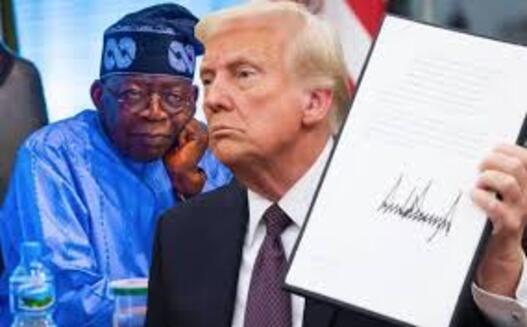The United States government has raised alarm over Nigeria’s continued import ban on 25 product categories, stating that the restrictions are severely limiting market access for American exporters and hurting trade relations between both countries. This criticism comes just days after US President Donald Trump announced a new round of tariffs targeting goods from several nations, including a 14% tariff on Nigerian exports.
In a statement posted on X (formerly Twitter) on Monday, the Office of the United States Trade Representative (USTR) described Nigeria’s policy as an “unfair trade practice” that is costing American businesses significant revenue. The USTR emphasized that the ban affects key sectors such as agriculture, pharmaceuticals, beverages, and consumer goods, making it harder for U.S. exporters to penetrate the Nigerian market.
According to the USTR, American companies are losing out on export opportunities due to Nigeria’s continued ban on critical products such as beef, pork, poultry, fruit juices, spirits, and medicaments. These restrictions, the office said, have become major trade barriers, discouraging foreign investors and reducing the flow of high-quality American goods into Africa’s most populous country.
Nigeria first implemented the import ban in 2016 in a bid to cut foreign exchange demand and encourage local production. The list includes items like frozen poultry, pork, beef, bird eggs, refined vegetable oil, sugar, cocoa products, noodles, fruit juice in retail packs, bottled water, alcoholic and non-alcoholic drinks, cement, soaps, sanitary wares, used tyres, plastic wares, and recharge cards.
Adding to concerns, the Nigerian government recently disclosed plans to halt the importation of solar panels as part of its clean energy initiative—an additional move that could complicate the trade landscape further.
In response to Trump’s aggressive tariff strategy, Nigeria’s Minister of Finance and Coordinating Minister of the Economy, Wale Edun, stated that the federal government is reviewing the impact of the global tariff war on the country’s economy. Edun noted that while crude oil—which makes up the majority of Nigeria’s exports—is exempted from the new tariffs, non-oil products have been hit with a 14% levy. He also highlighted that, in contrast, countries like Vietnam are facing a much steeper 46% tariff, suggesting potential advantages Nigeria could leverage to attract foreign manufacturing.
Edun said, “We are looking at the global picture and weighing the opportunities. Nigeria, with its stable economy, competitive exchange rate, and business-friendly environment, can attract manufacturers looking to exit countries like Vietnam. We are open and ready.”
Read also: Naira records sharpest depreciation against dollar amid Trump’s tariff announcement
Trump’s Trade War Escalates: Nigeria, global markets hit by sweeping new tariffs
EU vows countermeasures to US tariffs imposed by Trump
The Minister of Industry, Trade and Investment, Dr. Jumoke Oduwole, also weighed in, warning that the new reciprocal tariffs from the US could disrupt Nigeria’s oil and non-oil export sectors. She revealed that over 90% of Nigeria’s exports to the US are crude oil and mineral fuels, while non-oil products like fertilizers, urea, and lead make up just a small fraction. Other agricultural products, including flour and nuts, account for less than two percent.
Dr. Oduwole stressed that Nigerian goods, especially those in emerging and value-added sectors, now face major challenges in maintaining their competitiveness in the U.S. market due to the new 10% tariff on key product categories. She warned that SMEs, many of which had relied on duty-free access under AGOA (African Growth and Opportunity Act), will feel the brunt of the changes.
“The new tariffs introduce a level of uncertainty and rising costs that will make it harder for smaller exporters to secure stable buyers,” she said. “This is a wake-up call to strengthen our non-oil export sector by improving quality assurance and meeting global standards.”
As the trade tension escalates, analysts are urging the Nigerian government to reassess its import policy, especially at a time when the nation seeks to attract foreign investment and diversify away from oil dependency. The clash with the U.S. over market access could impact Nigeria’s global trade reputation and hinder its long-term economic ambitions unless swift and strategic action is taken.





